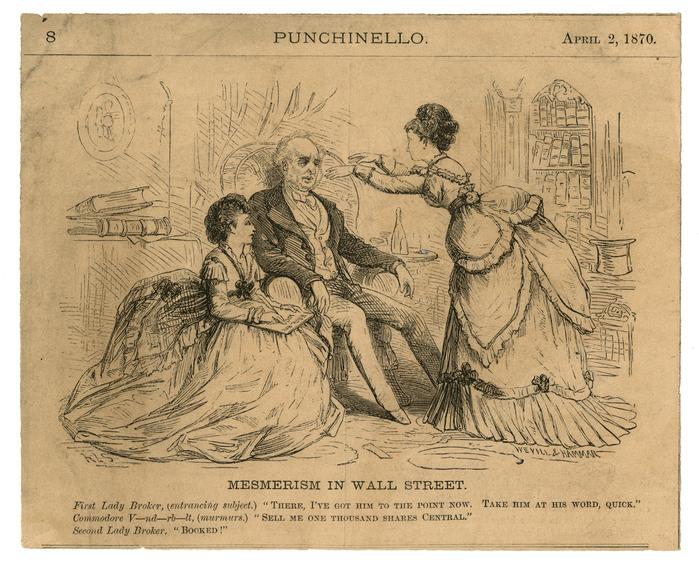Victoria Woodhull, 1838-1927
Entity Type:
IndividualIdentifier:
ENT.000002960Biography:
Victoria Claflin Woodhull was perhaps the most sensational woman of early 1870s America. Born in 1838 in Homer, Ohio, Victoria was the seventh of ten children of Reuben and Roxanna Claflin. She experienced a poor and rootless childhood. At an early age she, with her younger sister Tennessee, became interested in spiritualism, and the sisters helped support their family with their psychic remedies for medical problems. Victoria married Canning Woodhull, a physician, in 1853, and had two children with him. She divorced Canning in 1865, who had become a drunkard and had drifted away, and in 1866 at least secured a marriage license to marry her lover, Col. James Harvey Blood, a Civil War veteran who had been one of her patients (no record of an actual ceremony exists). Woodhull, Blood, Tennessee Claflin, and other members of the Claflin family moved to New York City in 1868, where the sisters arranged a meeting with Cornelius Vanderbilt, the wealthy financier who shared their interest in spiritualism. Vanderbilt became the sisters’ financial advisor, and after some financial successes in late 1869, they launched their brokerage house in January 1870, becoming the first female stock brokers in the United States. Vanderbilt was almost certainly the silent partner in their firm, Woodhull, Claflin & Co.By this time, Woodhull had also become involved in a number of reform causes, embracing Stephen Pearl Andrews’s idea of “Pantarchy,” which advocated a state in which property was commonly owned and free love replaced monogamous marriage. On April 2, 1870, Woodhull declared her candidacy for the presidency through a letter published in the New York Herald. In May, she and Tennessee launched their own newspaper, Woodhull & Claflin’s Weekly, edited largely by Andrews and Blood. The paper combined columns on radical reform ideals along with financial news and muckraking journalism. By 1871, Woodhull became involved in the woman suffrage movement and was embraced by leaders such as Elizabeth Cady Stanton and Susan B. Anthony. In January 1871 she became the first woman to testify before a congressional committee, speaking on behalf of the suffrage issue, arguing that women already had the right to vote under the Fourteenth Amendment. Suffrage leaders later distanced themselves from Woodhull, because of her radical views and controversial personal life. . In 1872, Woodhull was nominated for president by the newly organized Equal Rights Party, after losing the support of the National Woman Suffrage Association and its proposed People’s Party. By late 1872, Woodhull’s star was beginning to fall. She spent election day in jail for publishing and circulating through the mails, in violation of the Comstock Act, details of the beloved minister Henry Ward Beecher’s extramarital affair with Elizabeth Tilton in order to pressure Beecher to endorse free love. The backlash to her role in the Beecher scandal and to her own controversial lifestyle further isolated Woodhull. By 1876, she reversed her position on free love and distanced herself from spiritualism. She divorced Blood for adultery, and in 1877 left for England with Tennessee, her children, and other members of her family. There she married banker John Biddulph Martin in 1883 and lived a relatively conventional life. She published a journal on eugenics, lectured, and cultivated a respectable image. She died in Tewksbury in 1927.

Related Object: Mesmerism in Wall Street